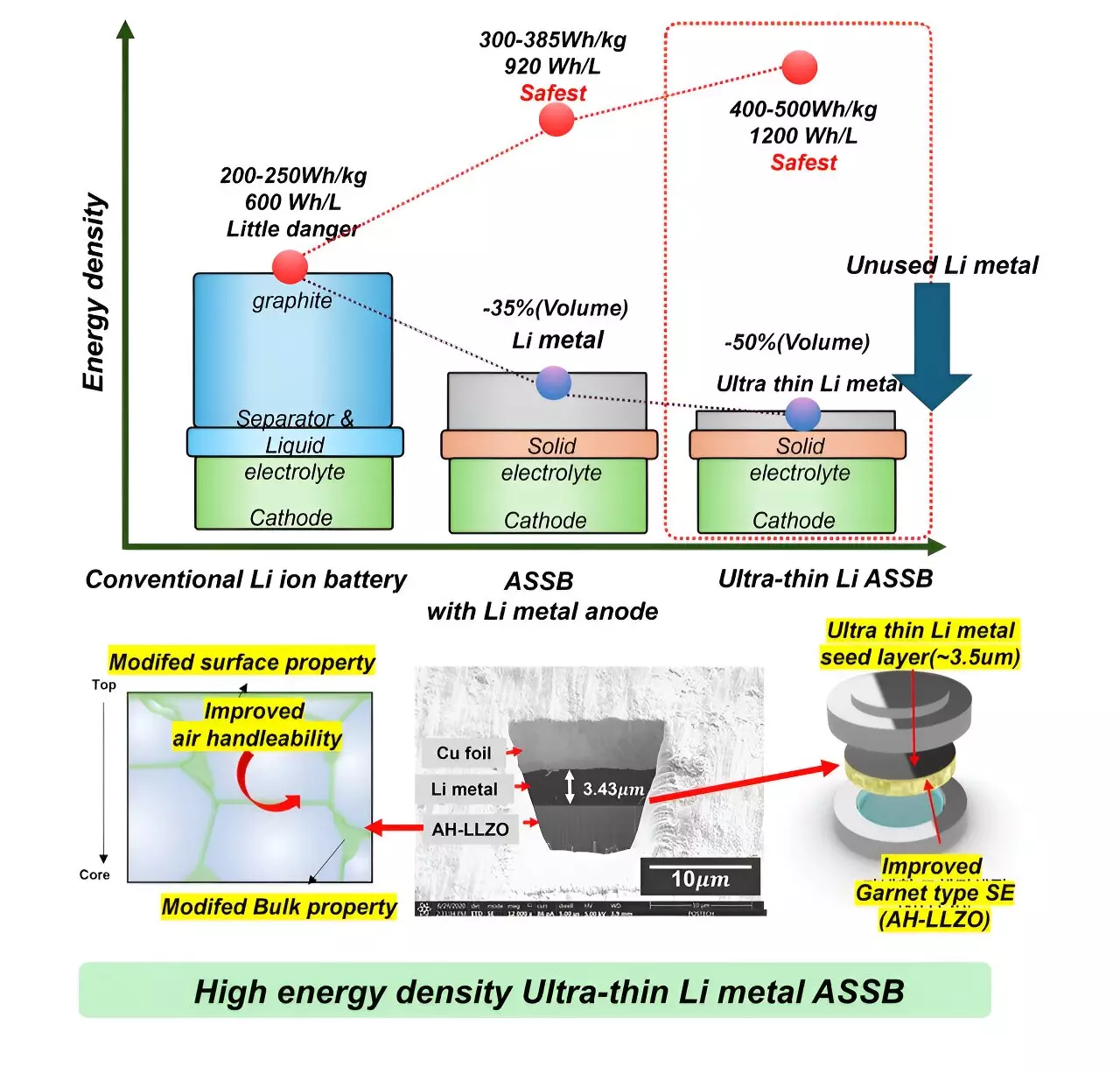When faced with challenges, our natural inclination is to seek complex solutions. However, a recent study conducted by a research team at Pohang University of Science and Technology (POSTECH) sheds light on the power of simplicity in innovation. The team, led by Professor Byoungwoo Kang and Dr. Abin Kim, took a different approach in addressing the issues of solid-state batteries by focusing on the core “essence” of the problem.
Solid-state batteries have been touted as the next generation of batteries, promising higher energy density and improved safety compared to traditional liquid-based batteries. Among the different types of solid electrolytes, the garnet-type oxide solid electrolyte (Li7La3Zr2O12, or LLZO) has high ionic conductivity. However, LLZO is prone to forming a contamination layer (Li2CO3) when exposed to air, leading to diminished performance in battery construction.
While existing methods focus on coating or treating the surface of LLZO to prevent contamination, the research team at POSTECH took a different approach. Instead of adding more layers or processes, they focused on enhancing the properties of the LLZO itself. By developing an air-handleable LLZO (AH-LLZO) technology, they created a hydrophobic compound (Li-Al-O) that inhibited the formation of contamination layers, both on the surface and inside the material.
The results of their experiments were groundbreaking, as they were able to create ultra-thin lithium solid-state batteries (~3.43 μm) with significantly reduced lithium metal usage. This not only decreased the overall weight and volume of the batteries but also improved energy density. By simplifying the process and eliminating the need for complex post-processing steps, the team was able to enhance the practical usability of garnet-type solid electrolytes.
Professor Byoungwoo Kang emphasized the significance of their research, stating that they had successfully addressed the inherent issues of LLZO without the need for additional treatments. This breakthrough represents a shift towards simpler and more effective solutions in battery technology, paving the way for the development of next-generation solid-state batteries with enhanced performance and practical usability.
The research conducted by the team at POSTECH highlights the importance of simplicity in innovation. By focusing on the core “essence” of the problem and developing a straightforward solution, they were able to revolutionize solid-state battery technology. This approach not only improves performance and energy density but also simplifies the manufacturing process, making solid-state batteries more accessible and practical for a wide range of applications.


Leave a Reply